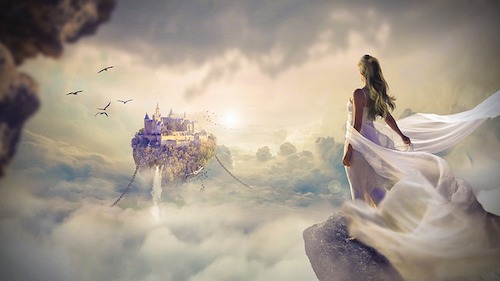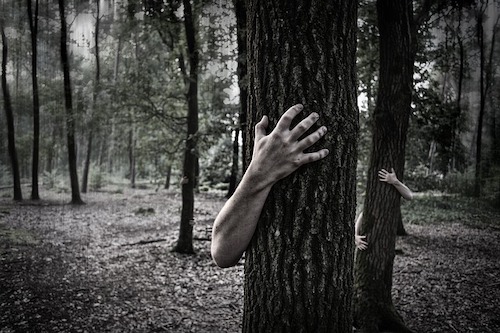
What are the pros and cons of each genre that screenwriters need to know?
While screenwriting is certainly an art form, with respect to a writer expressing themselves by telling a fictional story, there is no escaping the business end of this chosen career pursuit.
With novels and the publishing industry, there's more freedom when it comes to genre primarily because it doesn't take tens of millions or hundreds of millions of dollars to release a book.
The literary platform has plenty of room for any genre book and the costs to release those books pale in comparison to what it takes to develop, produce, sell, and market a feature film.
In the film industry, genre matters more.
The business end of screenwriting can't be overlooked by screenwriters. While some of the pundits — as well as seasoned, acclaimed, and award-winning screenwriters offering advice from the comfortable seat where their hindsight is 20/20 — often proclaim that a writer should write whatever they want and just find that perfect company to produce it for that niche audience, it's terrible advice.
If you want to work in this industry, at one point in time, you're going to have to understand that the business end of screenwriting is something you can't escape.
Yes, you should write those passion projects without worrying about who is or isn't going to buy it. But that art-minded side of you needs also to make way for that business-savvy side.
Here we share the general pros and cons of each genre in hopes that your business-savvy screenwriter can use the information to pick and choose what calculated risks — or safe bets — you make in your screenwriting.
Action/Adventure

Audiences love a good rollercoaster ride filled with action, suspense, adventure, and thrills.
There's a reason why the Fast and Furious franchise is so successful. The acting doesn't seem that great because the dialogue and characterization are secondary to the stunts and special effects. It's a calculated decision on the studio's part to worry less about the critical acclaim of those elements — or lack thereof — and more about the innovative action sequences that will keep audiences on the edge of the seats for two hours.
Rollercoasters don't take riders on an educational tour in between major drops, twists, and turns, do they? They don't slow down for a Shakespearean Review, right?
No. Instead, the best rollercoasters go as high and fast as they can because that's what the riders want — the thrill.
That's what an action adventure movie offers. If you can through in some compelling story and characterization, great. The Indiana Jones and Mission Impossible franchises have often excelled at that compared to other action and adventure offerings.
But they always deliver on innovative and visually enticing action sequences.
So if you're writing in the action-adventure genre, you need to be sure to offer creative sequences that take what audiences have already seen and evolve them into something new and different. That's what you're up against when you write in the action-adventure genre.
But when you do that, you need to be aware that this genre is also costly for studios to produce. Any action sequence or stunt is going to cost money. A lot of it. And that is a red flag that plagues undiscovered screenwriters trying to sell scripts on spec.
One way around this is to create a contained action-adventure piece that doesn't involve multiple sets, location, stunts, and special effects. When you condense that action and display it within a contained location, the budget goes down, and the Hollywood eyebrows go up in interest.
Comedy

While comedy is perhaps the most prolific genre in Hollywood, it is also one of the most difficult to sell on spec.
Back in the days of video stores, the comedy section always had the most titles. When you visit streaming libraries in these contemporary times, the same can be said.
So you should be writing comedies, right?
Well, the truth is that it's a tough genre to sell on spec. If you're not an established comedy writer, auteur, or popular stand-up comic, those scripts are going to be very difficult to sell.
Why?
Comedy is very subjective. What may sound hilarious to you may read as bland to a dozen script readers. You may love slapstick comedy, but that script reader may prefer the dry humor of Wes Anderson.
Action concepts and clever use of thrills and explosions are relatively universal whereas types of humor can be very niche.
"But look at the dumb comedy in those Adam Sandler movies!"
Well, Sandler's movies make money. He has a niche audience. The average Adam Sandler movie is produced for $70-$80 million, but worldwide they pull in $200 million or much more. Even his moderate hits are moneymakers. But that's beside the point. He's Adam Sandler.
So the struggle with writing comedies is that you face the barriers of subjectivity. While every script struggles with that, comedic scripts take it to the next level.
You overcome this by focusing on the core concept. Most successful comedies are "fish out of the water" concepts. You take a character out of their usual surroundings and throw them into places that are unusual to them — and hilarity ensues. The comedy is driven by the conflicts the character faces as they acclimate (or don't) to their new, unfamiliar, and uncomfortable surroundings.
Big (a child in an adult world), Tootsie (a man in a woman's world), Liar Liar (a lawyer who cannot lie), and Crocodile Dundee (an Australian bushman visiting New York) are perfect examples.
Those small, quirky comedies or those slapstick romps that the spec market is saturated with usually never see the light of day unless they are produced through the independent market.
But the big concept comedies are the ones that draw interest on spec.
Drama

Drama movies are complicated to market. Most people don't want to spend their time and money on a weekend night watching melodrama. When they do, it's usually to see an acclaimed actor or actress.
For screenwriters writing on spec, drama just doesn't sell. Yes, there are anomalies, but you can't bet on anomalies.
The one true exception is dramas based on true stories. Hollywood loves true stories, as long as they are compelling and cover subject matter that piques the interest of the audience's curiosity.
If you have a drama that is based on a true story, your odds of it drawing interest skyrockets, especially if it is military-based or True Crime.
"But hey, dramas are always nominated for Academy Awards!"
Yes, that's true. But most of them either come from the independent market or are developed by studio specialty companies. And more often than not, again, they are based on true stories or acclaimed novels.
So what can you do with your powerful fiction drama?
You can make the film yourself in the independent market (easier said than done, for sure) or you can market the script directly to those studio specialty companies or the production companies owned by acclaimed dramatic actors looking for a great role.
The contest, competition, and fellowship market is an excellent place to go for those scripts as well, especially if they have a specific Drama category. Great writing is what gets you noticed in that respect, opening possible opportunities for your other scripts that may have a more marketable genre or concept.
Fantasy

Fantasy used to be considered a dead genre. And then Peter Jackson made Lord of the Rings. And another book series adaptation debuted under the moniker of Harry Potter.
But those franchises were developed from highly successful intellectual property. And those fantasy films that came after them were as well.
So if you're thinking about developing your version of those types of fantasy films, you're going to be facing an uphill battle — especially if you're not adapting an already successful series of novels.
Fantasy is expensive. Worlds must be rendered. Fantastical sets must be designed. Otherworldly creatures and clothing must be created.
Horror

Some development executives, managers, and agents will say, "Horror is easy money."
It's the most profitable genre because most horror scripts cost less to produce. And audiences love a good scare.
Much like the action-adventure genre, horror movies offer audiences a thrilling experience. For whatever reason, people love to be scared. Primarily because they get that adrenaline rush knowing that, in the end, it's all fake and they're not going to suffer any consequences from the horror they've just experienced. Beyond sleepness nights and apprehensive walks in the dark.
The original Halloween had a production budget of just $325,000. It made $47 million. Adjusted to inflation, that's $181 million.
Get Out was produced for just $4.5 million. It went on to gross $255 million worldwide.
Split was produced for just $9 million and garnered $278 million worldwide.
Horror is easy money compared to other genres. Scares cost less because audiences are more afraid of what they don't see in the dark, as opposed to visual spectacles of CGI.
But that doesn't mean you can just write the latest haunted house flick and expect it to scare people into buying it. The horror spec market is both concept-driven, like comedy, and it's also driven by new and different takes on familiar horror tropes.
And because this market is so popular, with everyone trying to get in on the action, you have to stand out with a strong, compelling horror concept or a new and original take on what's already been produced.
Science Fiction

Science fiction is a difficult genre to pin down.
On the one hand, you can successfully write a contained science fiction concept script and pique the interest of readers. But on the other hand, many science fiction scripts are full of concepts and sequences that need to be rendered via special effects, which are costly.
Science fantasy films, which are represented by space operas like the Star Wars franchise movies, are box office poison. Studios have tried and failed to create their own franchises. But contained science fiction thrillers like Source Code, Looper, and Ex Machina have proven to be successful.
So when it comes to this genre, it's all about context.
Don't try to write your version of Star Wars. If studios have tried and failed, they're not going to want to gamble on expensive investments with your script. Instead, go write a series of science fiction or science fantasy novels, which is a hot genre in the literary platform.
Instead, find creative and more contained science fiction concepts that explore possible futures without the need for studios to spend $200 million realizing your vision.
Thriller

Thrillers give viewers heightened feelings of suspense, excitement, surprise, anticipation, and anxiety through the numerous and overlapping subgenres like mystery thrillers, suspense thrillers, horror thriller, psychological thrillers, etc.
These types of stories hinge on the tension that is created, accompanied by the anticipation of how the protagonist is going to prevail over the seemingly constant thrashes of conflict being thrown at them.
Whether it's The Fugitive, The Bourne Identity, Memento, Rear Window, or The Davinci Code, the thriller genre — and its many subgenres — are huge draws for the audience.
But if you plan on competing with the best, you need to craft a script that has ongoing conflict and ever-evolving twists, turns, plants, payoffs, and reveals every few pages.
Thrillers put the audience on an emotional rollercoaster ride, as opposed to the more visceral rides that action-adventure take the audience on. They challenge our intellect, rather than our senses.
They're the best scripts to read, but only when done right. So you need to be ready to bring your A-game to keep readers interested, invested, engaged, and compelled.
War

War or military driven films can often be better categorized as a subgenre within the action, comedy, and drama genres. But here we'll give these films their due as a single genre.
War movies are always popular in the theatrical market. Most of them are based on true stories, which again, Hollywood loves. There is a current trend of fact-based military stories in both the spec market and at the box office.
Fictional war tales have their place as well, thanks to the fact that writers can tell compelling fictional stories within the context of real past and present war conflicts.
However, war films can be expensive. Especially if they are period pieces. Period pieces, no matter the genre, are costly because they call for a larger budget in terms of production design, wardrobe, movie extras, and special effects needed to augment or outright generate realistic battle sequences.
There is certainly a market for war scripts, but screenwriters need to also understand the possible limitations they may face when marketing such scripts.
The element that could tip the scales in the writer's favor is having a true story to tell. Something that isn't overly derivative of the war movies we've seen before.
Don't Worry...
In the end, nobody knows anything. Your quirky comedy or beautiful fantasy might prove to be the next big thing. But it's important to know the business end of every major genre.
The purpose is to use this information to gauge where you should and shouldn't be marketing your scripts. And it should be used to temper your expectations when it comes to gauging the odds of your script's success in the current spec market.
And even more important, this information should be used to help you create a business plan approach to your screenwriting. Your stacked deck of scripts should contain those passion projects, accompanied by a few screenplays that are more desirable to managers, agents, development executives, and producers.
Your screenwriting career is never about one single script. You need to be able to showcase a body of work that's intriguing to anyone you showcase it to.
Know the genres. Know what you're up against with whatever script you choose to write. And then just write the heck out of it.
Read ScreenCraft's How to Choose the Right Movie Genre for Your Concept!
Ken Miyamoto has worked in the film industry for nearly two decades, most notably as a studio liaison for Sony Studios and then as a script reader and story analyst for Sony Pictures.
He has many studio meetings under his belt as a produced screenwriter, meeting with the likes of Sony, Dreamworks, Universal, Disney, Warner Brothers, as well as many production and management companies. He has had a previous development deal with Lionsgate, as well as multiple writing assignments, including the produced miniseries Blackout, starring Anne Heche, Sean Patrick Flanery, Billy Zane, James Brolin, Haylie Duff, Brian Bloom, Eric La Salle, and Bruce Boxleitner. Follow Ken on Twitter @KenMovies
For all the latest ScreenCraft news and updates, follow us on Twitter, Facebook, and Instagram.
Tags
Get Our Screenwriting Newsletter!
Get weekly writing inspiration delivered to your inbox - including industry news, popular articles, and more!



























